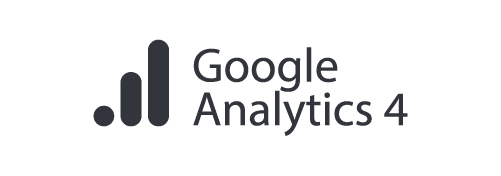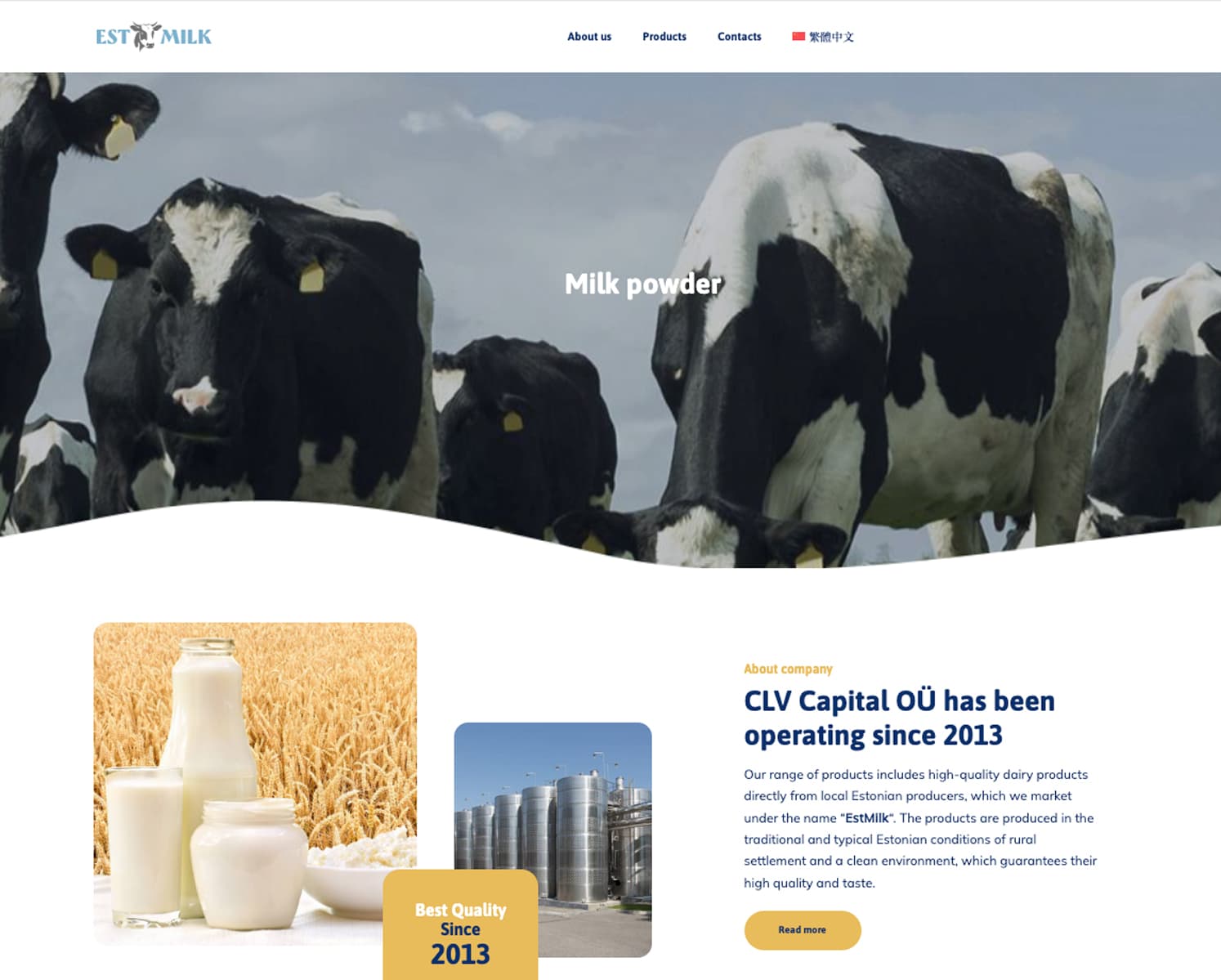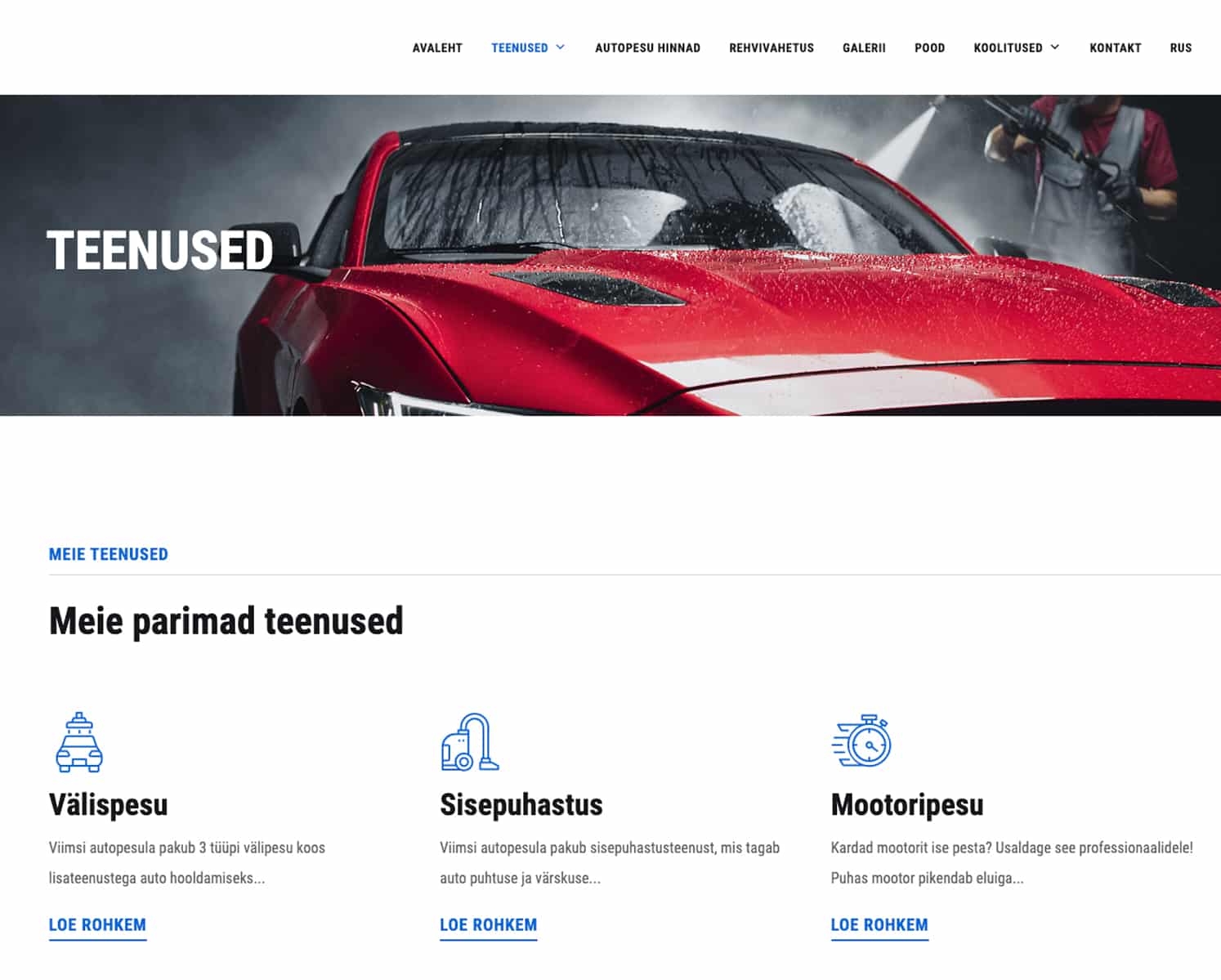SEO Service | Website Optimization
SEO, or search engine optimisation for websites, is an integral part of marketing in today’s digital age.
If you want potential clients to visit your website more frequently, then optimisation services are exactly what you need.
We help every website stand out better in Google searches with the right keywords.
SEO is the process of optimising a website to ensure that your offered service or product ranks high in Google search results.
We focus solely on what matters and ensure that every aspect of our optimisation efforts is transparent and measurable.
SEO analysis
We use professional tools to assess the current SEO status of your website. We identify keywords or phrases that potential clients use to search for your services or products. We determine the search volumes for these keywords or phrases and conduct a competitor analysis to assess the difficulty levels of these keywords or phrases. Additionally, we compile a list of various website optimisation activities.
Search Engine Optimisation (SEO) for websites
Once we have completed a thorough SEO analysis, we will start improving the website’s SEO optimisation activities according to the client’s offer—both on-page and off-page activities. The SEO service includes various tasks such as keyword research, content creation, page optimisation, technical SEO, link building, and more, all aimed at improving the site’s visibility and ranking in Google search results. One of the most important SEO strategies is link building, which significantly impacts the website’s position in search results.
Results
The key is having a goal and maintaining consistency in SEO activities. Unlike paid advertising, the benefits of SEO can continue to pay off long after the initial investment, making it a highly cost-effective marketing strategy in the long run.
Why is website optimisation beneficial for you?
A well-optimised website consistently ranks high in search results with the right keywords. This ensures that you receive the maximum number of inquiries, orders, or customer contacts.
Increases credibility and authority.
High-quality and authoritative links from other websites enhance the credibility of your site. Search engines view this as a signal that your content is valuable, which can lead to a higher ranking in search results.
Improves Rankings in GOOGLE
The more authoritative links that point to your site, the better your positions in Google search results. Search engines evaluate the number and quality of links to determine the importance of your website in a specific field.
Links, links, links...
Focus on acquiring high-quality and authoritative links. A link-building strategy should always prioritize quality over quantity. For the past 20 years, links have remained the best way to determine a website’s quality. Links continue to be a ranking signal for Google.

In website optimisation (SEO), we always use professional software solutions.
Specialised software provides more accurate data and metrics to evaluate the effectiveness of SEO strategies and make informed decisions about future actions. It also enables better keyword analysis, link analysis, and monitoring of competitors’ activities.







Looking for help with website optimisation?
With this offer, you will receive a free SEO audit from us!
Get a comprehensive overview of your website’s SEO quality. The report includes over 30 different parameters essential for website optimisation (SEO).
Join us for a free consultation. We also communicate digitally, but the best meeting is always a face-to-face one.
We help bring your wishes and ideas to life in a way that is genuinely beneficial to you. Together, we will create a solution that motivates clients to take action and grow your investment.
A motivated team creates valuable solutions.
Collaboration is not just progress, but a true springboard to greater heights where everyone benefits.
By valuing measurability and committing to specificity, we ensure that every client’s moment and cent invested carries value.
What should every website owner know about optimisation (SEO)?
SEO, or Search Engine Optimisation, is the process of making various technical and content-related changes to a website to improve its visibility in search engines such as Google, Bing, and Yahoo. The goal of SEO is to enhance the website’s position on search results pages to increase organic, or free, traffic.
SEO is important for several reasons:
Increased Visibility and Traffic: High positions on search results pages lead to greater visibility and more clicks. Most users do not go beyond the first page of search results, so it’s crucial to be represented there.
Trust and Authority: Users tend to trust websites that rank high in search results more. SEO helps enhance your website’s credibility and authority, which is important for building your brand’s reputation.
Better User Experience: SEO also includes technical aspects such as website loading speed and mobile-friendliness, which enhance the user experience. A good user experience means visitors spend more time on your site, which in turn improves your SEO performance.
Market Competition: SEO is a crucial component of digital marketing. If your competitors are engaging in SEO and you are not, you may fall behind in search results, which can reduce your website traffic and business opportunities.
Long-Term Results: Unlike paid advertising, whose effects end as soon as you stop paying, SEO can deliver long-lasting results. Properly executed SEO can ensure your website’s visibility for months or even years.
SEO includes several components, such as keyword research, content optimisation, technical SEO, link building, and user experience. Together, these elements help create a robust SEO strategy that can significantly enhance your website’s performance in search engines.
Starting with SEO can seem challenging, but with consistent effort and the right approach, good results are achievable. Here’s a step-by-step guide on how to get started with SEO:
Keyword Research:
- Identify Relevant Keywords: Use tools like Google Keyword Planner, Ahrefs, or SEMrush to find keywords that your target audience uses. Focus on keywords with high search volume and low competition.
- Long-Tail Keywords: These are longer and more specific phrases that can attract more targeted and motivated visitors.
Content optimisation:
- Create high-quality content: Develop content that is informative, valuable, and answers visitors’ questions. Ensure that keywords are naturally integrated into the content.
- Optimise Meta Data: Ensure that each page has a unique and keyword-rich title and meta description. Meta data helps search engines understand the page’s content and encourages clicks.
Technical SEO:
- Website Speed: Optimise your website’s loading speed, as slow-loading pages negatively impact user experience and search engine rankings. Use tools like Google PageSpeed Insights to identify and fix slow areas.
- Mobile-Friendliness: Ensure that your website is easily readable and usable on mobile devices. Google uses mobile-friendliness as a ranking criterion.
Internal and external links:
- Internal links: Use internal links to guide visitors to other relevant sections of your website. This improves site structure and helps search engines index your pages.
- External links: Acquiring strong external links from reputable websites boosts your website’s authority and improves its search engine rankings.
User experience and web design:
- Easy navigation: Ensure that your site’s navigation is intuitive and that visitors can easily find the information they need.
- Quality design: An attractive and user-friendly design that ensures a positive user experience.
Monitoring and analysis:
- Google Analytics and Search Console: Use these tools to monitor website traffic and understand how visitors interact with your site.
- Measure and adjust: Track the results of your SEO strategy and make adjustments as needed. Analyse which keywords and content generate the most traffic and conversions.
Starting with SEO requires consistency and patience, but when applied correctly, it can provide long-term and significant results.
Website optimization (SEO) involves several elements that work together to improve a website’s visibility and ranking in search engines. Here are the key elements to focus on:
Keyword research and usage:
- Keyword research: Find and use relevant keywords that your target audience searches for in search engines. Keywords should be relevant to your business and the products or services you offer.
- Optimised content: Use keywords naturally in your content, headings, meta descriptions, and URLs. Excessive keyword usage (keyword stuffing) can be harmful and may lead to search engine penalties.
Content quality and relevance:
- Valuable content: Create high-quality and relevant content that provides value to visitors and answers their questions. Good content helps keep visitors on your site longer and increases the likelihood of them returning.
- Regular updates: Keep your content current and fresh. New and up-to-date content is important for both user experience and search engines.
Technical SEO:
- Page speed: Ensure that your website loads quickly. Slow-loading pages can lead to higher user bounce rates and negatively impact SEO performance.
- Mobile-Friendliness: Ensure that your website is easily readable and usable on mobile devices. Google uses mobile-friendliness as a ranking criterion.
- Sitemaps and robots.txt: Ensure that your website includes an XML sitemap and a correctly configured robots.txt file. These help search engines index your site more effectively.
Links and link structure:
- Internal links: Use internal links to guide visitors to other relevant pages on your website. This helps improve site structure and user experience.
- External links: Acquiring strong external links from reputable websites boosts your website’s authority and improves its search engine rankings. Link building is an important part of SEO.
Meta Data:
- Titles and Meta Descriptions: Optimise titles and meta descriptions on each page by using relevant keywords. These help search engines understand the page’s content and attract clicks on search results pages.
- Alt Text: Add alt text to images that describes the picture and includes keywords. This improves your website’s visibility in search results and makes the page more accessible.
User Experience (UX):
- Simple navigation: Ensure that the website’s navigation is clear and intuitive. Users should be able to easily find the information they need.
- User-friendly design: An attractive and user-friendly design ensures a good user experience and increases the likelihood of visitors returning.
SEO is a complex and multifaceted process, but by focusing on these key elements, you can significantly improve your website’s visibility and ranking in search engines.
Choosing the right SEO keywords is a crucial part of an SEO strategy because these words and phrases determine which search results your website will appear in. Here is a step-by-step guide on how to choose the right keywords:
Keyword research:
- Using tools: Use keyword research tools like Google Keyword Planner, Ahrefs, SEMrush, or Ubersuggest to find keywords that your target audience is using in search engines.
- Start with broad keywords: Begin with more general and broad keywords related to your business or the products and services you offer.
Keyword specificity and relevance:
- Long-tail keywords: Focus on longer and more specific keywords (long-tail keywords). These keywords are often less competitive and can attract more targeted traffic.
- User intent: Consider what your target audience is actually searching for and what their search intent is. Are they looking for information, wanting to buy something, or trying to solve a specific problem?
Competitor analysis:
- Competitor research: Examine the keywords your competitors are using. Use tools like Ahrefs or SEMrush to analyse competitors’ keywords and their positions in search results.
- Competition level: Assess the level of competition for keywords. Choose keywords with high search volume but low competition.
Keyword evaluation and selection:
- Relevance: Choose keywords that are most important for your business and target audience. Keywords should be closely related to your offerings and the content of your website.
- Search volume and competition: Combine keywords with high search volume and those with low competition to maximise your chances of gaining visibility in search results.
Testing and optimisation:
- A/B testing: Test different keywords and analyse which ones bring the most traffic and conversions. Optimise your content based on the results obtained.
- Monitoring and adjusting: Use tools like Google Analytics and Google Search Console to monitor the performance of your keywords. Regularly adjust your keyword strategy based on the data you gather.
Choosing keywords requires careful research and ongoing monitoring, but well-chosen keywords can significantly improve your website’s visibility and search engine ranking.
Website optimisation (SEO) is a long-term strategy, and seeing results may take time. Generally, SEO results begin to become visible within 3 to 6 months, but this depends on several factors:
Level of competition:
- High competition: If you are operating in a highly competitive field, achieving results may take more time as you have to compete with many other websites.
- Low competition areas: In lower competition areas, results may be seen more quickly due to fewer websites to compete with.
Website condition:
- New website: New websites may take more time for search engines to discover and index. Additionally, building authority and credibility is necessary.
- Existing website: If your website is already established and has some visibility in search engines, you may see optimisation results more quickly.
SEO strategy and implementation:
- Comprehensive strategy: Implementing a comprehensive and well-thought-out SEO strategy can speed up the visibility of results. This includes keyword research, technical SEO, content optimisation, and link building.
- Consistency: SEO requires consistent and ongoing effort. Regularly updating content, building new links, and addressing technical issues are crucial for achieving long-term success.
Search engine algorithms:
- Algorithm updates: Search engines, especially Google, regularly update their algorithms. These updates can impact your SEO results both positively and negatively.
- Adaptability: It is important to adjust your SEO strategy according to algorithm changes and search engine best practices.
User experience and engagement:
- User experience: A good user experience (UX) can help improve SEO results. Websites that provide an excellent user experience are more likely to achieve higher positions in search results.
- Engagement: Engaging and interacting with website visitors can also impact results. More clicks, a lower bounce rate, and longer visit durations are all positive signals to search engines.
In summary, seeing SEO results can take time, but consistent and strategic work will ultimately lead to better visibility, increased traffic, and higher search engine rankings. It is important to be patient and continue optimising, even if results are not immediately visible.
The decision to do SEO yourself or hire an SEO agency depends on several factors, including your level of expertise, time, and resources. Both approaches have their own advantages that should be considered.
Advantages of DIY SEO:
Cost savings:
- Low costs: If you handle SEO yourself, you avoid paying agency service fees. This can be particularly beneficial for small businesses and startups with a limited budget.
- Control over expenses: You can decide yourself where and how much to invest, such as in tools or training.
Business orientation:
- Deep business understanding: Your knowledge of your business, customers, and market is invaluable. You can create content and strategies that are precisely tailored to your target audience.
- Flexibility: You can quickly respond to changes in the market or search engine algorithms without waiting for an agency’s response.
Acquired knowledge:
- Learning opportunities: By doing SEO yourself, you acquire valuable skills and knowledge that can be useful in the future as well.
- Continuous development: You stay up-to-date with the latest trends and best practices, as you need to constantly learn and adapt.
Advantages of Hiring an SEO Agency:
Expertise and experience:
- Specialised knowledge: SEO agencies often have years of experience and deep knowledge of various industries and SEO tactics.
- Professional tools: Agencies use advanced tools and analytics that can be costly and complex to manage on your own.
Time savings:
- Faster execution: SEO agencies can quickly implement strategies and optimisations due to their established processes and teams.
- Focus on core activities: By delegating SEO to an agency, you can concentrate on your business’s core activities and other important tasks.
Results and measurement:
- Results-oriented: Agencies have experience in achieving and optimising results. They continuously monitor your SEO campaigns and make necessary adjustments.
- Regular reports: Agencies provide regular reports and analyses that give a clear overview of your SEO progress and results.
Summary:
- Do it yourself: This is more suitable for small businesses or solo entrepreneurs who have the time and desire to learn and implement SEO for their business. This option offers greater cost savings and control over the process.
- Hire an agency: This is more suitable for medium-sized and larger companies that seek faster and more professional results. Hiring an agency frees up your time and ensures that SEO strategies are implemented according to best practices.
The decision depends on your specific needs and resources. Both approaches can be successful if implemented correctly and consistently.










